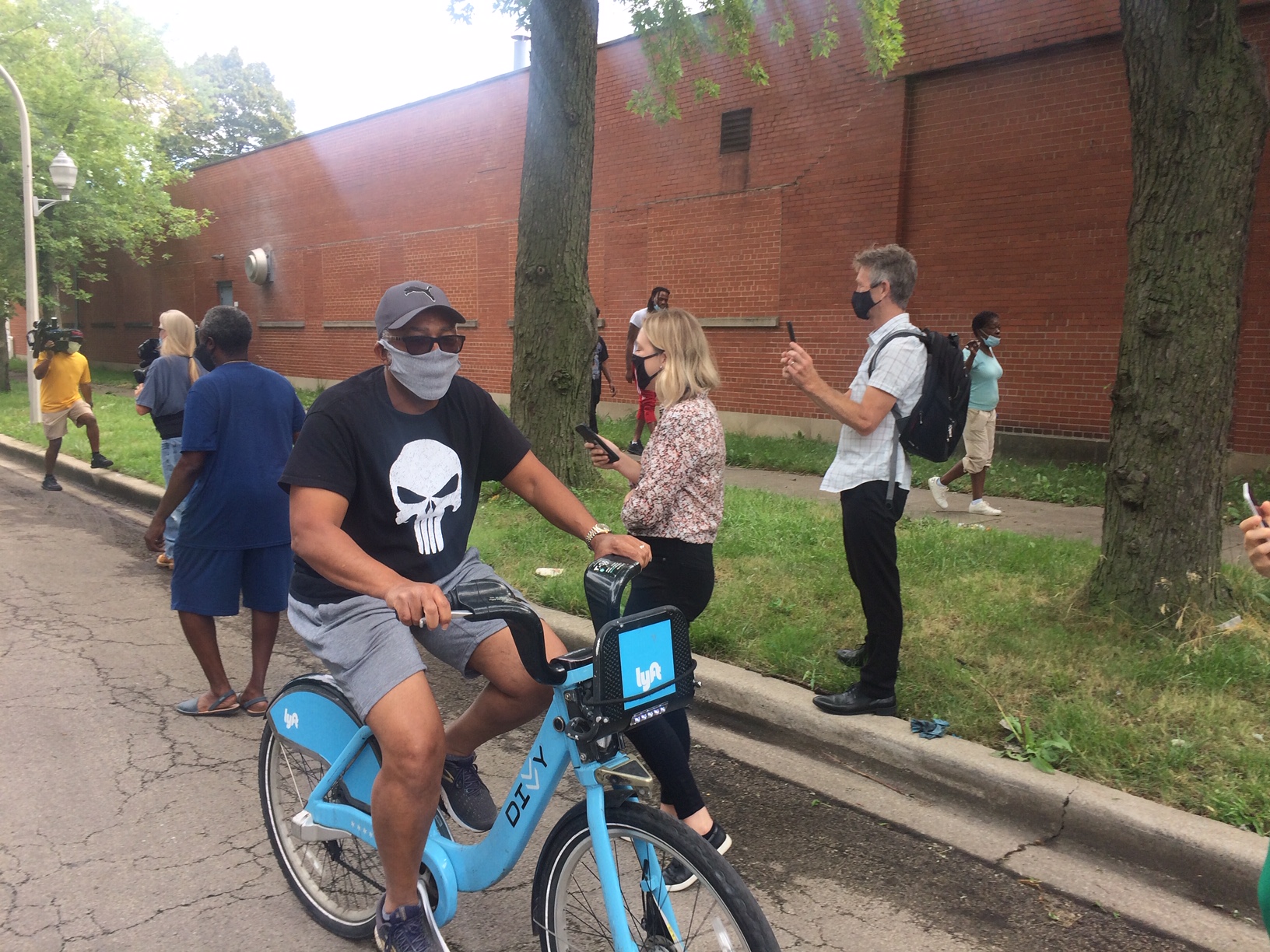Today the Chicago Department of Transportation and Lyft, the Divvy concessionaire, announced that the bike-share system, including new stations and electric bikes, will finally be expanding into the Far South Side later this summer, roughly later than the fall 2019 launch that was announced last year. It's about seven years after the system's original summer 2013 launch.
CDOT spokesman Mike Claffey partly blamed the delay on COVID-19. "We weren't going to to the rollout during Stay at Home, and that slowed down the community outreach process," he said. "Siting each station takes a lot of work. We didn't feel putting stations out during lockdown would make sense or be practical."
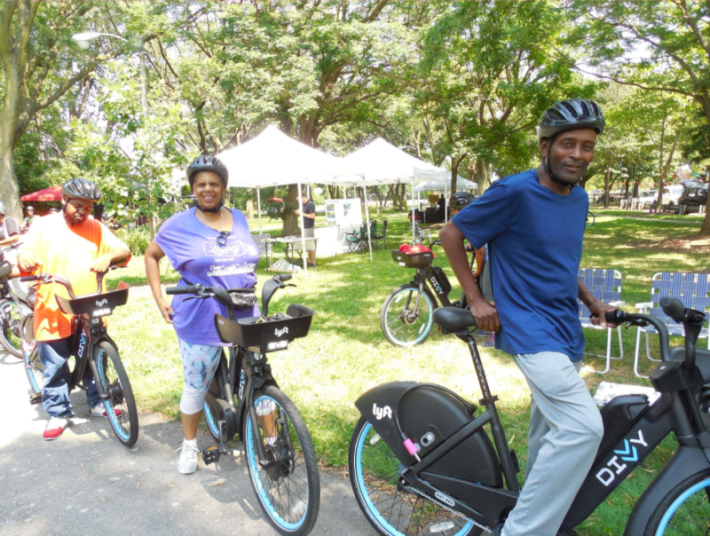
Divvy currently has 600 docking stations and about 6,000 bikes. The expansion will include 66 new stations and 3,500 additional bikes, including a mix of blue standard Divvy cycles and black electric bikes. It will increase the coverage area by about 60 square miles, bounded on the north at 74th Street in West Englewood, running south along Ashland and then spanning east, west and south to the city limits. The southernmost Divvy station will be at the Hegewisch Metra and South Shore Line station.
CDOT chief Gia Biagi and Alderman Howard B. Brookins Jr., chair of City Council's transportation committee, hosted a press event this morning at 83rd Street and Stewart Avenue, the site of a new station, joined by community leaders and transportation advocates.
Brookins' participation in a pro-cycling event was noteworthy, considering that he suffered serious injuries in a bike crash in November 2016, after a "kamikaze squirrel" jumped in his spokes while he rode on the Cal-Sag Trail. Ironically, the attack came shortly after the alderman railed against "aggressive squirrels" chewing through garbage cans during a City Hall hearing.
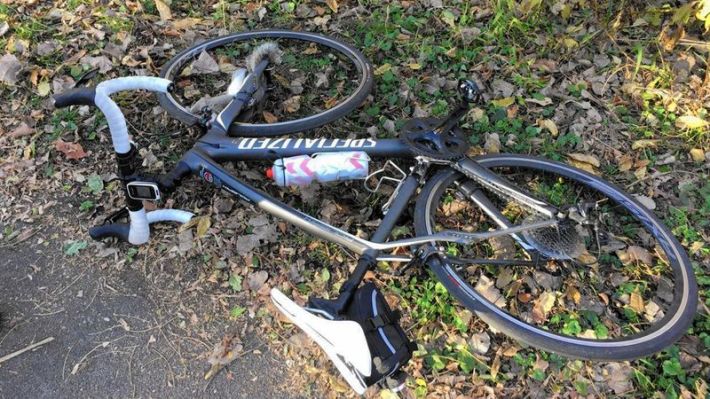
"With this expansion...we will have cemented our status as the largest bike-share program [by service area] in the country," Biagi said at the event. "This time next year, we will be the biggest, best, the most diverse, the most engaged community [of bike-share users -- something to be proud of. Standing here today is an example of how we're going to get there. [We] do this in response to what communities are saying and what works in your neighborhood."
CDOT spokesman Mike Claffey said the department will be installing a few stations each week through September. "We know biking is a very [COVID-]safe form of transportation, and that's why we're really happy to be bringing it to the folks who live on the South Side. That's the first step of the citywide extension."
The public input process for siting the new stations included community events and bike tours. According to CDOT, more than 15,000 residents were engaged in person at over 75 events on the Far South Side and more than 150 citywide, Lyft also awarded 15 grants totaling $100,000 to community groups to increase bike share use in lower-income communities. And last year Divvy launched a Bike Mechanic Bootcamp to train Chicago youth in bike repair and prepare them to apply for jobs with the company.
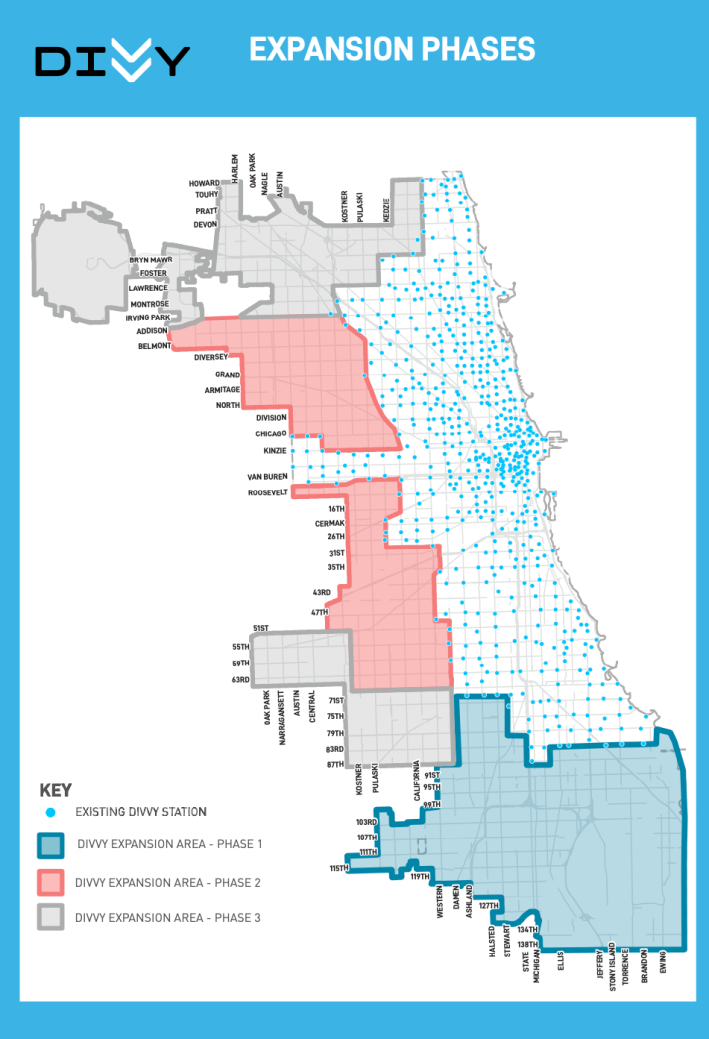
Despite the past delays, CDOT now says the Divvy system will be expanded citywide by 2021, including the addition of 10,500 e-bikes, bringing the system to 16,500 bikes and 800 stations. The electric cycles can be parked at stations, as well as bike racks or poles in any public location, using a built-in U-lock. As such, the spacing of the new Far South stations will be relatively sparse, ranging from about three-quarter-mile to a mile, compared to roughly a half-mile spacing between most existing stations on the South Side, and quarter-mile spacing downtown and in dense North Lakefront neighborhoods.
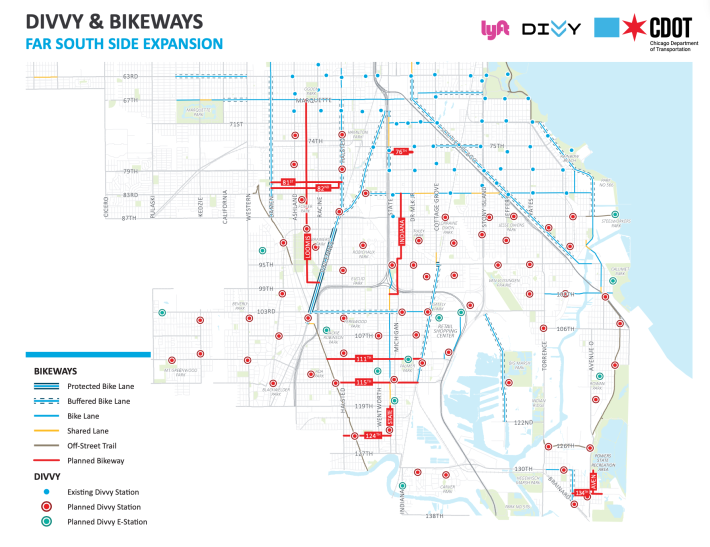
CDOT also announced plans for almost ten miles of car-restricted Slow Streets and pedestrianized Cafe Streets, as well as 16.5 miles of new bike lanes, funded partly by sponsorship revenue from Lyft. Under the expansion deal, Lyft is spending $50 million on new bikes, stations and hardware, and has also agreed to provide the city with an additional $77 million for transportation improvements over the remaining nine years of the contract.
There were no e-bikes at today's presser. The pandemic has slowed down manufacturing, while the current biking boom is making it difficult for the bike industry to keep up with demand. CDOT's Claffey said there should be an announcement about the e-bikes "in the coming weeks."
